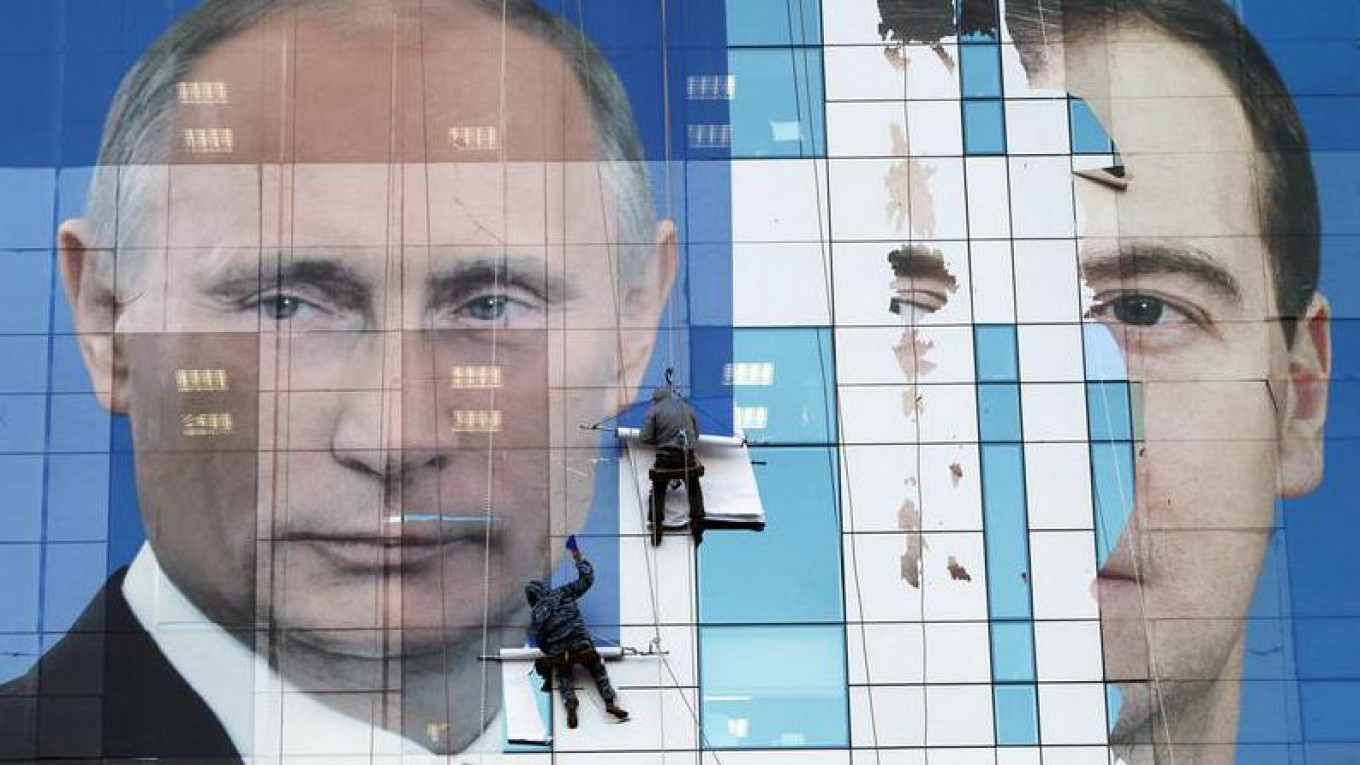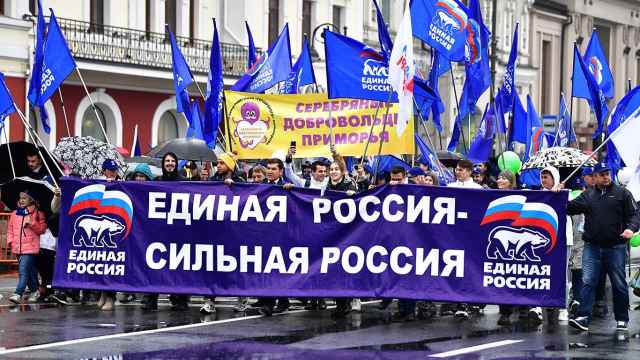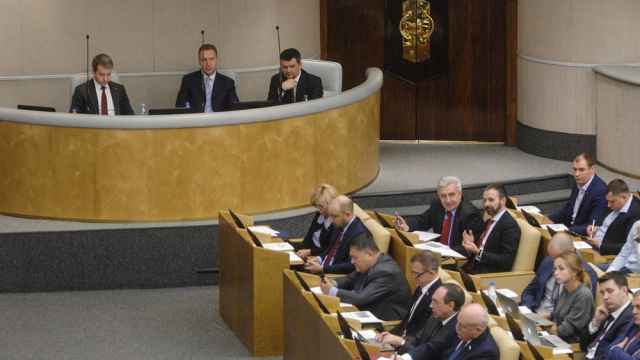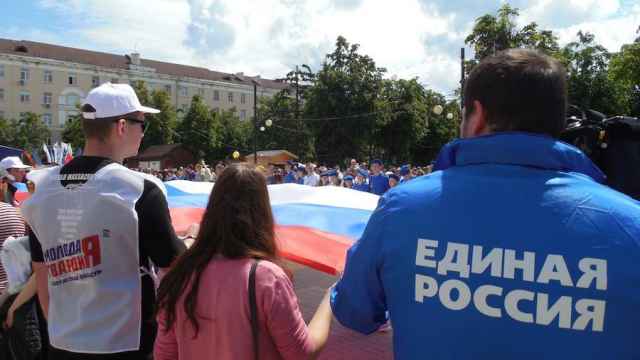With little over two weeks left until Russia stages a parliamentary vote, ruling party United Russia is struggling to reverse a downward trend.
A survey published Thursday by the independent Levada Center pollster showed support for United Russia had dropped from 57 percent to 50 percent in August compared to July among those who said they were going to vote in the Sept. 18 State Duma elections.
The change was 39 percent to 31 percent when including undecided voters.
United Russia's rating has fallen slowly but steadily in recent months as the election date approaches.
In late 2010 and 2011, tens of thousands of people took to the streets after United Russia won 49 percent of the vote in elections largely seen as rigged. The Levada Center’s new polling data is now fueling speculation that United Russia's downward spiral could be a sign of renewed political tension.
Analysts, however, have been quick to dismiss the suggestion that the figures show Russia could be on the verge of another large-scale protest movement.
The campaign season, which pundits have criticized for being largely uneventful and predictable, has nonetheless reminded voters about political alternatives, like the parliamentary opposition parties the Liberal Democratic Party (LDPR) and A Just Russia.
“It's created a kind of 'marketplace' of political proposals that people were unaware of until now,” says Alexei Grazhdankin, deputy director at Levada. “The unanimous consensus around United Russia as the government's party is being diluted.”
With many Russians feeling the effects of the financial crisis on their wallets, social issues are high on their agenda. But the man at the top of United Russia's list, Prime Minister Dmitry Medvedev, is becoming increasingly unpopular as he continues to be a harbinger of bad news.
Earlier this year, Medvedev was widely mocked after responding to a question about the government's decision not to index pension payments with the advice: “There's no money. But you hang in there!”
This week, he defended the government's pre-election decision to hand out one-time payments of 5,000 rubles ($75) in January 2017, rather than adjust pensions for inflation, saying he considered it “absolutely fair.”
“It's cost United Russia support among pensioners, who are some of its most loyal voters,” says Levada's Grazhdankin.
Meanwhile, United Russia has “utterly failed” to come up with a convincing campaign, says political analyst Abbas Gallyamov. “They don't have a message, except: 'We're the party of the majority” and “Everyone else is worse,”” he says.
United Russia is seen less as a party than as a synonym for the government as a whole, according to the Carnegie Center's Andrei Kolesnikov. “It's like another government body,” he says, explaining that this makes it more vulnerable to backlashes against unpopular government measures.
The party’s only fallback strategy, it seems, is a last-minute drive to emphasize its ties to President Putin, whose approval ratings have been immune to Russia’s worsening socio-economic conditions, which have held at close to 82 percent. United Russia representatives and Putin are scheduled to meet next week on Sept. 6, the Kommersant business daily reported.
But Putin, who handed over his chairmanship of the party in 2012 claiming it required a non-partisan leader, stands little to gain from such association and doesn't need it, analysts argue.
“People have stopped associating the actions of the government with Putin,” says Kolesnikov. “He's not a person—he's become a symbol for [the annexation] of Crimea, and for Russia as a great power.”
Meanwhile, even United Russia’s falling rating still puts it far ahead of the other parliamentary parties and the race’s nominally independent candidates, ensuring that the Kremlin will maintain its control in parliament, regardless.
In other words, says Kolesnikov, a vote for United Russia’s rivals is a symptom of discontent, but it is only a protest vote in name. “It's still a vote for the system,” he says. “It's still a vote for Putin.”
The Levada Center conducted its poll between Aug. 26 and 29, questioning 1,600 people in 48 Russian regions. The margin of error did not exceed 3.4 percentage points.
A Message from The Moscow Times:
Dear readers,
We are facing unprecedented challenges. Russia's Prosecutor General's Office has designated The Moscow Times as an "undesirable" organization, criminalizing our work and putting our staff at risk of prosecution. This follows our earlier unjust labeling as a "foreign agent."
These actions are direct attempts to silence independent journalism in Russia. The authorities claim our work "discredits the decisions of the Russian leadership." We see things differently: we strive to provide accurate, unbiased reporting on Russia.
We, the journalists of The Moscow Times, refuse to be silenced. But to continue our work, we need your help.
Your support, no matter how small, makes a world of difference. If you can, please support us monthly starting from just $2. It's quick to set up, and every contribution makes a significant impact.
By supporting The Moscow Times, you're defending open, independent journalism in the face of repression. Thank you for standing with us.
Remind me later.






